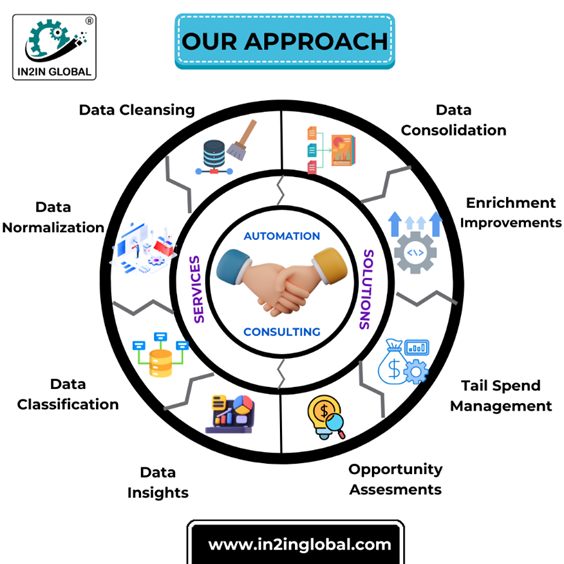The Ultimate Guide to Microsoft .NET Certification
In the rapidly evolving world of technology, having the right certifications can be a game-changer for your career. Among the numerous certifications available, Microsoft .NET certification stands out for its comprehensive coverage of a versatile framework that is integral to modern software development. This guide will delve into what the Microsoft .NET certification entails, its benefits, and how to prepare for it.
What is Microsoft .NET?
Before diving into the certification details, it's essential to understand what Microsoft .NET is. .NET is a free, cross-platform, open-source developer platform for building many types of applications. With .NET, you can use multiple languages, editors, and libraries to build for web, mobile, desktop, gaming, and IoT. Key components of .NET include:
- .NET Core: A cross-platform framework for building modern, cloud-based, and internet-connected applications.
- ASP.NET: A framework for building web apps and services with .NET and C#.
- Xamarin: A set of tools for building cross-platform mobile apps with .NET and C#.
- Entity Framework: An ORM (Object-Relational Mapper) framework for working with databases using .NET objects.
Why Pursue Microsoft .NET Certification?
- Career Advancement: A .NET certification can significantly enhance your resume, making you more attractive to potential employers.
- Skill Validation: Certification validates your skills and knowledge, proving that you have the expertise needed to work with .NET technologies.
- Competitive Edge: In a competitive job market, having a certification can give you an edge over other candidates.
- Professional Development: Pursuing certification encourages continuous learning and keeps you updated with the latest developments in .NET technologies.
- Networking Opportunities: Being certified can open doors to professional networks and communities, providing opportunities for collaboration and career growth.
Microsoft .NET Certification Paths
Microsoft offers several certification paths for .NET developers, each catering to different levels of expertise and areas of focus. The primary certifications include:
1. Microsoft Certified: Azure Developer Associate
This certification is ideal for developers who design, build, test, and maintain cloud applications and services on Microsoft Azure. Key skills measured include:
- Developing Azure compute solutions
- Developing for Azure storage
- Implementing Azure security
- Monitoring, troubleshooting, and optimizing Azure solutions
- Connecting to and consuming Azure and third-party services
2. Microsoft Certified: Azure Solutions Architect Expert
This certification is for professionals who have advanced experience and knowledge in IT operations, including networking, virtualization, identity, security, business continuity, disaster recovery, data platforms, and governance. Skills measured include:
- Designing monitoring, identity, and security solutions
- Designing data storage and business continuity solutions
- Designing infrastructure
- Designing app architecture, integration, and migration
3. Microsoft Certified: DevOps Engineer Expert
This certification targets professionals who combine people, processes, and technologies to continuously deliver valuable products and services that meet end-user needs and business objectives. Skills measured include:
- Developing an instrumentation strategy
- Developing a Site Reliability Engineering (SRE) strategy
- Developing a security and compliance plan
- Managing source control
- Facilitating communication and collaboration
How to Prepare for Microsoft .NET Certification
Preparation is key to successfully earning a Microsoft .NET certification. Here are steps to help you prepare:
1. Choose the Right Certification Path
Determine which certification aligns with your career goals and current skill level. Assess the skills measured and ensure they match your expertise and interests.
2. Utilize Official Microsoft Resources
Microsoft offers a plethora of resources, including learning paths, documentation, and official exam guides. These resources provide a structured approach to learning the required skills.
3. Online Courses and Tutorials
Platforms like Microsoft Learn, Pluralsight, Udemy, and Coursera offer comprehensive courses tailored to specific Microsoft certifications. These courses often include hands-on labs and practice exams.
4. Hands-On Practice
Practical experience is crucial. Engage in hands-on projects to apply what you've learned. Microsoft's Azure free tier offers a sandbox environment for experimenting with cloud solutions.
5. Join Study Groups and Forums
Collaborate with other learners through study groups, forums, and online communities. Websites like Stack Overflow, Reddit, and LinkedIn groups can provide valuable insights and support.
6. Practice Exams
Take practice exams to familiarize yourself with the exam format and identify areas where you need improvement. Websites like MeasureUp and Whizlabs offer practice tests that simulate the real exam experience.
Exam Day Tips
- Arrive Early: Give yourself plenty of time to settle in and reduce pre-exam anxiety.
- Read Questions Carefully: Ensure you understand what is being asked before answering.
- Manage Your Time: Keep an eye on the clock and pace yourself to ensure you have enough time to answer all questions.
- Stay Calm: Maintain a calm and focused mindset throughout the exam.
Post-Certification Benefits
Once you earn your Microsoft .NET certification, you'll unlock several benefits:
- Digital Badge: Showcase your certification on your LinkedIn profile, resume, and email signature.
- Access to the Microsoft Certified Community: Connect with other certified professionals and expand your network.
- Career Opportunities: Increase your chances of landing higher-paying jobs and advancing in your career.
- Continuous Learning: Stay updated with exclusive resources and updates from Microsoft.
Conclusion
Earning a Microsoft .NET certification is a valuable investment in your career. It validates your skills, enhances your resume, and opens up numerous professional opportunities. By choosing the right certification path, utilizing available resources, and diligently preparing for the exam, you can achieve this esteemed credential and take your career to new heights. Whether you're a seasoned developer or just starting, a Microsoft .NET certification can be a significant step toward achieving your professional goals.




Comments
Post a Comment